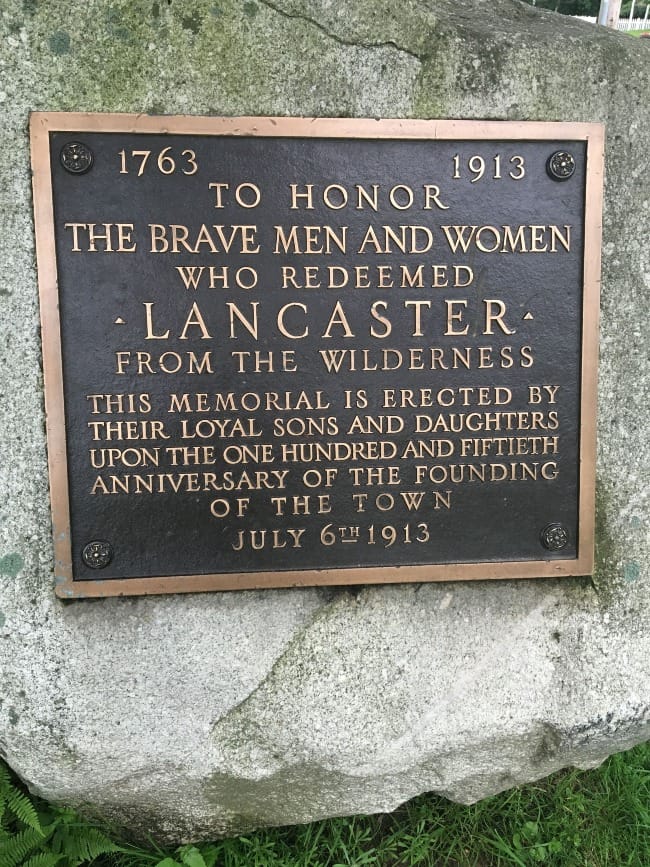Here is the ninth installment of our Exodus series. If you want to take a minute to read Exodus 17:8-15, click HERE. And if you missed the last column in this series, click HERE. Once again, we will walk through the text and highlight aspects that are not typically noticed, and then conclude with a few themes for ecological discipleship. Thoughts and comments are welcome. - James.

This is the part of Exodus I have not been looking forward to writing about. Biblical stories that include divinely initiated or sanctioned violence raise difficult issues that I am unable to fully resolve. I have learned a few things that help me live with the tension - some of which I share below - but the tension remains. It is tempting to skip over today's passage, but we must acknowledge and wrestle with these "texts of terror," as I heard a biblical scholar once refer to them. And, in the tension, there is often wisdom to be gleaned. So let's take a look.
The Israelites have been camping at Rephidim, close to Mount Sinai. They are headed toward a powerful encounter with God, but first they encounter a powerful enemy - the Amalekites, a nomadic people who most likely inhabited areas of the Sinai peninsula as well as parts of Canaan. They may see Israel as a threat to put down or a vulnerable people to raid, or both. Whatever the Amalekite's motivation, Israel is faced with a military threat for the first time since Pharaoh's chariots surrounded them at the Red Sea.
Moses acts swiftly, deputizing Joshua to gather some men and go into battle while he and "the staff of God" head up a hill overlooking the fight. The battle commences, with Israel holding the advantage as long as Moses holds up his hands, which he is able to do over the course of the battle with the help of Aaron and Hur. In the wake of victory, God gives a command and a promise:
Then the Lord said to Moses, “Write this as a remembrance in a book and recite it in the hearing of Joshua: I will utterly blot out the memory of Amalek from under heaven.” And Moses built an altar and called it, The Lord is my banner. He said, “A hand upon the banner of the Lord! The Lord will have war with Amalek from generation to generation.”
Having just passed Holocaust Remembrance Day on January 27, and in light of other wars and genocides that have been given theological justification by the perpetrators, we need to be extremely careful with how we interpret these verses. It is helpful to note, for instance, that in this story Israel is weak and vulnerable. God cares deeply about people who find themselves in such a position, and often speaks with charged, emotional language about those who would take advantage of the weak. When referencing this battle, Deuteronomy 25:17-19 describes the Amalekite attack this way:
Remember what Amalek did to you on your journey out of Egypt, how he attacked you on the way, when you were faint and weary, and struck down all who lagged behind you; he did not fear God.
If this was indeed what happened, it is a particularly heinous act of aggression and cruelty. That said, it is one thing to respond to such cruelty with emotional cries for vengeance, but quite another to codify rhetorical anger into policy, which appears to have happened with Israel. In 1 Samuel 15, the prophet Samuel commands Israel's first king, Saul, to remember God's promise to annihilate the Amalekites and see it done. Saul goes to battle and defeats them, but does not fully enact the command, and for this he is judged unfit to be king. Samuel then proceeds to finish the gruesome task.
I am comforted by the fact that the Hebrew scriptures offer alternative ways of dealing with enemies, such as Proverbs 25:21: If your enemies are hungry, give them bread to eat; and if they are thirsty, give them water to drink." A strong case can be made that this is the dominant perspective of the Hebrew Bible. It is certainly the perspective that Jesus takes:
You have heard that it was said, ‘You shall love your neighbor and hate your enemy.’ But I say to you: Love your enemies and pray for those who persecute you, so that you may be children of your Father in heaven, for he makes his sun rise on the evil and on the good and sends rain on the righteous and on the unrighteous.
Jesus rejects the theological demonization of enemies, and offers an alternative strategy of radical love that recognizes the humanity of everyone. This is, I think, a more difficult path than retributive violence, but it is more aligned with the Bible's overall picture of what shalom, or the kingdom of God, is meant to be.
While not an easy text to give guidance to our journey of ecological discipleship, let me suggest one theme for reflection.
Theological Demonization Harms The Whole Community of Creation
There is a direct connection between the demonization of human beings/groups, and the demonization of other creatures and places. Consider this example from my hometown of Lancaster, NH.

If you think that wilderness needs to be "redeemed," you have provided the theological justification to defeat, control, and destroy the non-human world. In the West, this perspective has, in part, been rooted in the doctrine of discovery, a series of papal edicts that provided theological justification for European Christians to claim ownership of lands they "discovered," which also included the right to extract the natural wealth that those lands had accumulated over millenia. And so old growth forests were felled, numberless mines and wells were dug, animals were hunted to extinction, and land became subject to the particular vision of the white pioneer.
Such an attitude of domination does not stop with the land, however - how we treat the land will be the way we treat the people of the land. If the wilderness is unredeemed, so are the people who live there. We see this acutely in the organized subjugation, and sometimes the extermination, of Native and Indigenous people. Lenore Three Stars, who is Oglala Lakota and a board member of Circlewood (our parent ministry), points out that the doctrine of discovery provided justification for the “violent assimilation of Native children in Indian boarding schools,” which often operated under the motto, “kill the Indian, save the man.” Three Stars notes that “Over time, practice affected institutionalized injustice, which persists today.”
This is the vicious circle of theological demonization.
Along with Lenore, the Circlewood board and staff reject the theological demonization of people and places, and we specifically repudiate the Doctrine of Discovery. Other Christian organizations and churches, like my own Covenant denomination, have done the same. We are committed to doing our best to bring healing to the community of creation - I know you are, too.
Final Thoughts
While I will continue to wrestle with these "texts of terror," I recognize that the Bible does not always speak with one voice - there are sometimes conflicting points of view that stand in tension with one another. While this may be threatening to some readers, I find it an honest acknowledgement of the human element of Scripture. I am also comforted by the Bible's trajectory towards forgiveness, healing, and shalom.
There is some irony in the fact that the command to write down God's commitment to "blot out the memory of Amalek" actually preserves it. Perhaps it also preserves a call to remember these difficult ancient stories, and the ones unfolding before us, so that we can wrestle with them and, ultimately, recognize that there is a better way forward.
With you on the Way,
James
Leave a comment below, or email me directly at james.amadon@circlewood.online.
Like what you are reading? Consider a one-time gift to our parent ministry, Circlewood, or join our supporter community, The Circlewood Stand. Just $10/month makes a huge difference, and makes you part of a growing group of people standing FOR the good of creation and standing WITH Circlewood as we make a difference together. Thanks for considering!